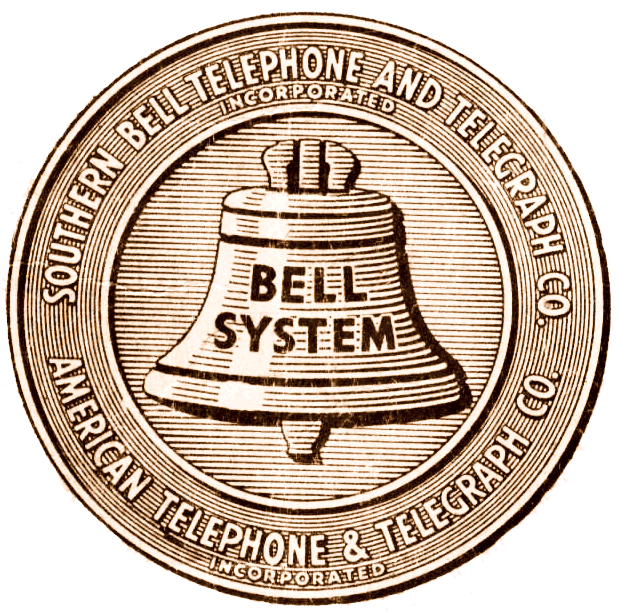It’s looking like a really bad year for Hyundai and Kia
Friendly reminder that these cars are about 25% cheaper in South Korea than in the US: they’re targeting a different market in the US than they’re designed for.
Why worry about this intangible issue of spontaneous EV battery combustion when there’s a very real issue of spontaneous ICE brake combustion?
Why not worry about both? Whataboutism.
And while we’re at it, why not use that worry to move away from car centric urban design and culture in general because cars are unavoidably dangerous and costly.
Because America is fucked and moves about as fast as a snail in molasses?
Seriously, I’m not sure what you want to hear in this regard. I’m Canadian and I fucking love the transit systems we have in Vancouver and Montreal, but the US is way too dysfunctional to get anywhere close. Look at the state of the MBTA in Boston.
The top three public transit systems in North America are in the US, not Canada. (NY, SF, and Chicago.) Vancouver’s is great for its size, but Toronto is ranked similarly to Los Angeles, and it shows with its car centric suburban sprawl and public resistance to density or expanding transit. The 401 is one of the worst highways on the continent.
I don’t know what you’re talking about. Canada is moving WAY slower than the US on density and public transportation. Many US cities are imposing supply minimums and eliminating exclusive SFH zoning, like in Minneapolis, Boston, and Portland. California, Oregon, and Maine have supply targets, while only BC has done the same. This is why the housing crisis and car dependence is much worse in Canada. We’re in total denial up here.
Anyone who’s actually ridden SF or Chicago subways would struggle to make that claim.
Moreover, anyone who’s actually lived in Boston would know that 1. The transit system is literally falling to pieces and 2. Development in any of the multitude of richer municipalities is blocked by NIMBYs like it’s nobody’s business.
Getting from Harvard to Logan still takes two fucking swipes for fucks sake.
Tbf canadas spending power is nowhere near America. They have 10% of the population and a little under 10% of the gdp of the us. Canada is doing as well as they can but don’t expect miracles.
Canada is wealthier than most European and Asian countries with far better public transportation. The excuses are endless, but this is honestly just a problem of lack of will and imagination.
That’s true, I was just offering reasons on why a few American cities have better transport than Canadian, even with equal willpower, the Americans have more money to throw at the problem
Man I’m tired of hearing this
We would all like actual public transport in America
However, we have WAY BIGGER PROBLEMS in America than our means of transit and we are totally unable to address those. Priorities man
That is just empirically untrue. Almost to the point of delusion. Transportation is a HUGE problem.
- American transportation costs are some of the highest in the world, and is the biggest hit on family budgets after housing.
- Cars are one of the biggest sources of greenhouse gas pollution causing climate change.
- Tire pollution is the biggest source of micro plastics in the ocean.
- Driving is the deadliest activity we regularly do, the biggest source of childhood death, though guns are now not far behind in the US.
- Car centric urban design leads to long commute times, social isolation, lack of exercise, all of which are much worse in car centric places.
- Car centric suburban sprawl is why the US and Canada have a housing crisis, despite so much space.
On the contrary, I can hardly think of anything else that has as much negative impact on so many aspects of society.
What seems to be impossible is to locate businesses, their employees, and stores geographically close together. I have lots of friends who drive over an hour each way for work. I used to drive 30 minutes to my job. Now my wife and i work from home and for the first time in my life we have only one car. But there’s no way we could go without a car. Family lives 120 miles away. Groceries are 10 miles, and other necessities are 26 miles. The US was laid out to require personal vehicles. It’s too spread out to have a functioning mass transit system that’s convenient to use.
Using the such a system in the US, even if convenient, has risks. During the peak of COVID, many riders refused to wear masks. There’s no security, no hygiene or conduct standards for riders (try to sit next to a crazy homeless person or someone higher than a kite for 45 minutes), and when you try to get help from law enforcement, nobody shows up.
All of that is fixable with the right policies
End zoning restrictions which requires all single family homes in a given area and allow mixed zoning. Minneapolis and the surrounding suburbs are doing this right now and there are apartments going up with the ground floor being shops, grocery stores, etc. Minneapolis is the first US city to rein in inflation below 2% because housing hasn’t been as much of an issue. They started funding higher density housing back in 2018 and it is paying off tremendously right now.
One you build a few apartment buildings in the same area you can support bussing to the surrounding area, and most people can get around to where they need to for work.
Ideally you get light rail, but nimbyism is a huge pain that is hard to overcome. Still though, just getting to that point reduces the number of trips you need especially if you build bike trails to make short distance commuting even easier without a car.
Not to mention, to really achieve what they’re suggesting, most of the US would need to be completely razed and built back up from scratch. However, these comments always phrase it as if it’s just a simple matter of opinion whether you live in a car-centric culture or not.
I’m not sure where you’re getting the idea that improving public transportation requires cities to be “completely razed”. What a ridiculous straw person. Incremental change is not only possible, it’s already happening.
Is that not what you referenced when you said “moving away from car-centric urban design and culture?” How does that happen without rebuilding downtown areas and suburbs? Sending a few more busses out to suburbia isn’t going to change anything.
I shouldn’t have to say this, but no, “moving away from” does not mean “completely raze”. 🙄
So what does it mean? Adding a few more busses to suburbia like I said? Why don’t you explain what you mean rather than wasting so much time telling others that they’re not understanding you correctly?
If Mussolini got the trains to run on time, why shouldn’t we?
EV’s use brakes too motherfucker.
EVs use regen braking for typical operation, so while they do use the brakes the brakes don’t see much load.
You should worry about both tbf, but please read your article. It says less than 50 vehicles have been confirmed to have this happen and they’re recalling nearly 4 million. Those are pretty good statistics in my opinion
Spontaneous trailer harness combustion, spontaneous oil pump combustion, what’s next?
Kias don’t lock you inside when they catch fire
Owners went to take their cars to dealerships only to find them stolen
This recall came too late IMHO. I already know someone in my family who had their Kia catch on fire. However, the car won’t get stolen now so…
Never underestimate what a scrap metal guy will steal or won’t steal.
I reckon he’d steel it instead.
This is the best summary I could come up with:
WASHINGTON, Sept 27 (Reuters) - Hyundai (005380.KS) and Kia (000270.KS) are recalling a combined 3.37 million vehicles in the United States due to the risk of engine fires, telling owners to park outside and away from structures until repairs are complete.
The automakers say internal brake fluid leaks can cause an electrical short that could lead to a fire.
The National Highway Traffic Safety Administration (NHTSA) said owners should follow the advice of automakers and park vehicles outside until repairs are made.
Kia America’s recall covers 1.73 million Borrego, Cadenza, Forte, Sportage, K900, Optima, Soul Rio, Sorento, and Rondo vehicles.
Hyundai is recalling 1.64 million Elantra, Genesis Coupe, Sonata Hybrid, Accent, Azera, Veloster, Santa Fe, Equus, Veracruz, Tucson, Tucson Fuel Cell, and Santa Fe Sport vehicles from model years covering 2011 through 2015.
Hyundai plans to notify owners to bring vehicles to a dealer to replace the ABS module fuse.
The original article contains 309 words, the summary contains 150 words. Saved 51%. I’m a bot and I’m open source!
Which years of the Genesis Coupe? Cause when I check the recall website, it says 0 recalls found for my 2010.
Hyundai is recalling 1.64 million Elantra, Genesis Coupe, Sonata Hybrid, Accent, Azera, Veloster, Santa Fe, Equus, Veracruz, Tucson, Tucson Fuel Cell, and Santa Fe Sport vehicles from model years covering 2011 through 2015.
2010 should be fine I guess
Nice. Just barely missed out. Thanks.







